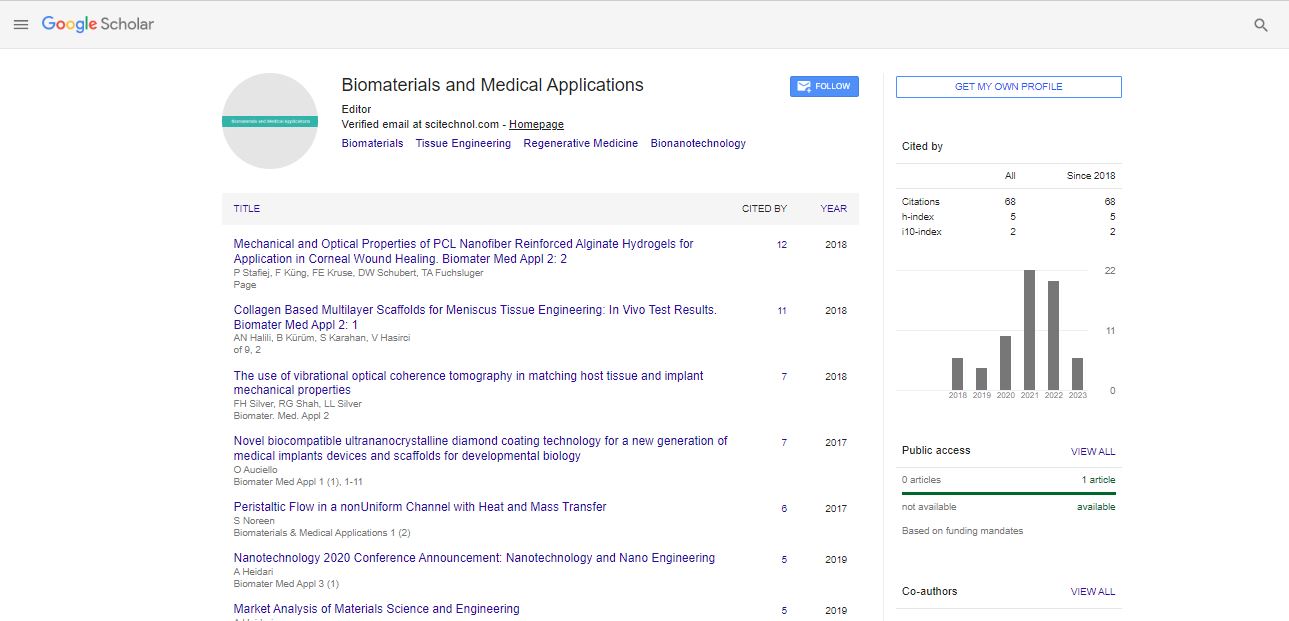A new approach to regenerative cartilage tissue engineering using temperature sensitive therapeutic hydrogels
Juana Mendenhall
Morehouse College, USA
: Biomater Med Appl
Abstract
Injury and diseases that affect articular cartilage present a daunting challenge in orthopedic medicine. During the onset of injury or disease, low oxygen environments decrease healthy cartilage cell growth and regeneration. Ultimately, this environment reduces the efficacy of traditional biomaterial scaffolds to provide a regenerative interface. Our research group has developed a therapeutic injectable hydrogel that provides a regenerative interface for cartilage tissue engineering via a cell protective mechanism. Poly(Nvinylcaprolactam) [PVCL]; a smart biomaterial that changes its molecular orientation upon temperature change along with its mechanical properties in conjunction with other natural products is used. This hydrogel composite, containing PVCL-Hyaluronic AcidTherapeutic (PVCHA- TH) affords a robust hydrogel with tunable Lower Critical Solution Temperature (LCST) parameters near physiological temperature. Hydrogels were synthesized and used in vitro static cell culture studies and in vivo studies. Using 3D printing, hydrogels were also fabricated to compare the effect of material properties on cell proliferation and metabolism on Extra Cellular Matrix (ECM) proteins. Fetal bovine chondrocytes were harvested and seeded or 3D (Three-Dimentional) bio printed into various formulations of PVCL-HATH under normoxia (21%) and hypoxia (1%) low oxygen conditions. Chondrocyte cell viability at 1% O2 levels remained higher than that of 20% O2 levels in PVCL-HA for each time point. PVCLHA hydrogels reached a maximum of 89% on the third day of observance. Higher cell viability was also noted on meHA samples at 1% O2 levels than at 20% O2 levels, with the peak value at 74% on the first day of observance. Animal studies were performed for 30 days after injection of therapeutic hydrogels into the defective knee joint confirm higher amounts of chondrocyte cloning within the murine joint. This work shows promise in providing a cytoprotective biomaterial construct that will begin to regenerate diseased articular cartilage.
Biography
E-mail: juana.mendenhall@morehouse.edu
 Spanish
Spanish  Chinese
Chinese  Russian
Russian  German
German  French
French  Japanese
Japanese  Portuguese
Portuguese  Hindi
Hindi 